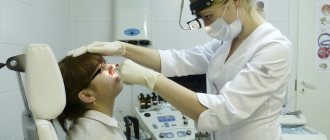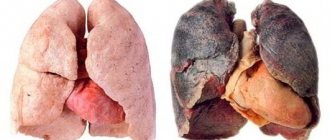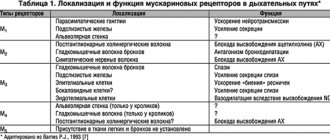Recurrent herpes of the external genitalia
Typical recurrent herpes on the skin and mucous membranes of the genital organs, usually in the same place, subjective: burning, itching manifested by repeated blistering rashes.
Atypical forms of recurrent herpes, which greatly complicate the diagnosis.
In atypical forms, either one of the stages of development of the inflammatory process in the lesion predominates (erythema, blistering), or one of the components of inflammation (edema, hemorrhage, necrosis), or subjective symptoms (itching), which give the corresponding name to the atypical form (erythematous, bullous, hemorrhagic, necrotic, itchy, etc.).
Atypical forms of herpes of the external genitalia are more common in women than in men.
The subclinical (asymptomatic) form is manifested by microsymptoms: short-term (less than a day) appearance of one or several microcracks, accompanied by slight itching. Sometimes there are no subjective sensations, which reduces the number of patients visiting medical institutions and complicates diagnosis.
The subclinical form is detected mainly during virological examination of sexual partners of patients with any sexually transmitted infection, or during examination of married couples with impaired fertility.
Clinical diagnosis of abortive course, atypical and subclinical forms of RGG is difficult and can only be made using virological research methods.
A feature of genital herpes is multifocality. The pathological process often involves the lower part of the urethra, the mucous membrane of the anus and rectum.
Organs of the genitourinary system in women and men that may be affected:
- entrance to the vagina;
- vagina;
- vaginal part of the cervix;
- cervical canal;
- urethra;
- bladder;
- anus;
- rectal ampulla;
- mucous membrane of the uterine cavity;
- body of the uterus;
- the fallopian tubes;
- ovaries;
- prostate;
- seminal vesicles;
Risk factors
Certain conditions and symptoms may contribute to viral invasion.
Risk factors may be associated with primary diseases and a person's lifestyle. Predisposition factors for genital herpes:
- gender (Women are much more likely to be diagnosed with the disease);
- unprotected sex. (using a polyurethane or latex condom helps reduce the chance of infection);
- promiscuity;
- the presence of other infections affecting the genital organs;
- dysfunction of the immune system, including acquired immunodeficiency;
- carrying out various surgical interventions in non-sterile conditions.
Preventive measures help reduce the risk of viral invasion.
Transmission routes
There are 2 ways to become infected with the genital herpes virus (HSV-2):
- Sexual is the main route of transmission, which consists of leading a promiscuous sexual life and/or lack of contraception. You can become infected with herpes through traditional as well as oral or anal contact with an infected partner. The transmission of the pathogen will take place even in the absence of any visible manifestations;
- Household – involves the use of contaminated personal hygiene items and everyday items; it works only if there are wounds, cracks and erosions on the skin.
Interestingly, not all carriers of HSV-2 develop the disease to its full extent. In some people it may be completely asymptomatic. However, there are several factors that can bring the herpes virus out of its dormant state. They can be:
- Hypothermia;
- Temporary or permanent weakening of the immune system caused by chemotherapy, taking hormonal drugs containing corticosteroids, as well as immunodeficiency conditions (HIV or AIDS);
- Overheating;
- Concomitant diseases – acute respiratory viral infections, acute respiratory infections, diabetes mellitus, etc.;
- Surgical intervention - insertion of an intrauterine device, abortion, etc.;
- The appearance of ulcers or erosions on the external genitalia;
- Infection with STDs.
Pathophysiology
Herpes virus type 2 (HSV-2) is the main causative agent of the disease. The genetic material of the pathogen is represented by a double-stranded DNA molecule. After penetration into the mucous membranes of the genital organs, the pathogen migrates to the cells of the nervous system, therefore many complications of genital herpes are associated with the functioning of the central nervous system. The virus can remain in neurons for a long time even with drug therapy. In the external environment, the causative agent of the disease persists for several hours, but high temperature quickly destroys the virus.
The causative agent of genital herpes has the following properties.
- Significant neurovirulence. The immune system does not stop the virus from invading cells of the nervous system.
- Latency. Herpes gets into the nerve ganglia close to the gate of infection and does not manifest itself symptomatically for a long time.
- Reactivation. Re-replication of the virus can occur even after long-term remission. Relapses are observed with fever, injury, stress, menstruation and other conditions.
Cellular immunity is capable of fighting the pathogen, however, in patients with HIV infection and other diseases that affect the body's protective properties, the virus quickly spreads in the tissues. HSV-2 enters susceptible cells through special receptors, inserts its own genetic information into DNA and reproduces new viral particles, which subsequently migrate to other areas. Lymphocytes are capable of synthesizing specific antibodies against the causative agent of the pathology, however, even after an HSV-1 infection, the development of another type of herpes cannot be ruled out.
Genital herpes disease
HSV is an intracellular parasite that belongs to the second subfamily of the herpes virus family.
The virus itself (virion) is structured as follows: it is a twisted spiral, in the middle there is its genome (DNA), which is enclosed in a protein capsid and covered on the outside with a lipoprotein shell. The capsid is a protein capsule that protects the virus.
The herpes virus does not contain a reproductive apparatus, so it requires a living cell to replicate. The host cell (human) stimulated by the viral genome supplies the virus with energy, and the process of virus reproduction begins:
- The virus adheres to the host cell.
- Next, the cell “undresses” and penetrates the DNA of the host cell, where it produces its offspring.
- The host cell is destroyed and new virions are released.
Clinical picture
Both types of herpes simplex virus can cause primary and recurrent infections. The course of the disease depends on the age and immune status of the person. In addition, it is necessary to take into account the genetic characteristics of the virus. Primary infection with HSV-1 and HSV-2 is characterized by generalized symptoms and a high incidence of complications. In contrast, recurrent genital herpes is characterized by mild symptoms and periodic remissions. A high frequency of relapses is observed in patients with congenital and acquired forms of immunodeficiency.
Primary genital herpes
The pathology is manifested by external pathological signs associated with damage to the mucous membranes and systemic symptoms. If the patient suffered a type 1 herpetic infection before being infected with HSV-2, a milder course of the disease is observed. Early signs of the disease include redness of the mucous membranes of the genital organs, ulcerations, and the appearance of blisters on the skin. Patients also complain of headache, general malaise, myalgia and fever.
Other symptoms and signs:
- Discharge from the vagina and penis.
- Enlargement of nearby lymph nodes.
- Severe itching in the area of the infection gate.
- Swelling of the mucous membranes.
- Painful urination.
In women, the largest accumulation of vesicles is observed in the area of the labia majora and minora. Ulcerations can also occur in the mucous membrane of the cervical canal and urethra. In men, the virus affects the glans penis, foreskin and skin of the scrotum. Ulcers can also form in the anal area. The first complications of genital herpes include inflammation of the urethra and cervicitis in women. Skin changes persist for two weeks, after which tissue re-epithelialization occurs.
Recurrent herpes
Repeated episodes of the disease occur in 50-75% of patients who have had acute genital herpes. Signs of pathology remain, but symptoms may be more subdued. Periods of absence of clinical manifestations of infection (remission) continue for several weeks or months. In severe cases of the disease, monthly relapses are possible.
A day before the formation of ulcers, many patients experience redness of the skin of the genital organs. Another specific sign of recurrent infection is neuralgia of the sacral spine. Vesicles persist for 5-8 days. Women tend to have more ulcerations in the labia majora and labia minora.
The patient’s quality of life decreases due to constant exacerbations of the disease. Patients complain of insomnia, irritability, loss of appetite, depression and apathy. Neurological complications of herpetic infection occur less frequently during relapses, but the prognosis largely depends on the person’s immune status.
Non-standard clinical picture
Atypical genital herpes can be characterized exclusively by a latent course or erased symptoms. The patient is found to have chronic inflammation of the urethra and genital organs, without ulceration. In this case, differential diagnosis based on laboratory tests is necessary.
Spread of atypical infection:
- The virus affects the external genitalia.
- The infectious agent gradually moves to the area of the vagina, cervix and urethra.
- The virus causes inflammation of the prostate gland, uterus, bladder and other organs.
This form of the disease is detected in every third patient. An ascending infection that affects the internal genital organs often causes dangerous complications. True asymptomatic herpes is diagnosed in approximately 1-2% of patients.
Consequences and prognosis
Genital herpes is the most dangerous during pregnancy; we discussed possible complications above.
With genital herpes, the following are also likely:
- secondary infection of ulcers with the development of creeping phlegmon;
- acute urinary retention;
- synechiae in the labia area (their fusion of varying degrees);
- infertility, both in men and women (with damage to the internal genital organs);
- Problems of a sexual nature cannot be ruled out.
It is impossible to get rid of genital herpes; treatment is aimed at reducing the frequency of relapses and preventing complications, so the prognosis for the disease is relatively favorable.
Sections on the diagnosis and treatment of genital herpes comply with the Federal Clinical Guidelines for 2013
Pathology during pregnancy
As mentioned earlier, the herpes virus can enter fetal tissue through the placenta. Infection during childbirth is also possible, since the causative agent of the disease affects the mucous membranes. In this regard, screening for genital herpes should definitely be done when planning pregnancy. If the infection is diagnosed late, a caesarean section is recommended to prevent infection of the baby.
Primary genital herpes is the most dangerous. Intrauterine development involves the active formation of organs and systems of a new organism, so any pathological effects can cause birth defects. In the early stages of pregnancy, the virus can actively penetrate the nervous tissue of the fetus and disrupt the development of the central nervous system. Other negative consequences of infection include a high risk of miscarriage and premature birth.
Infection in newborns
Typically, infection of a child occurs after rupture of the membranes or directly during childbirth. HSV-2 primarily affects the mucous membrane of the mouth and respiratory tract. The virus can subsequently spread through the body through the bloodstream and cause more severe complications. The independent transfer of the pathogen to other anatomical areas should not be ruled out.
Features of the disease in newborns:
- ulceration of the mucous membranes with the formation of foci of hemorrhage;
- eye damage. (pathology causes inflammation of the cornea, conjunctiva and choroid of the organ);
- prolonged fever;
- inflammation of the brain and its membranes;
- neurological disorders;
- breathing problems;
- vascular insufficiency.
The complications listed above most often occur 10-14 days after the manifestation of the disease, when the infectious process becomes generalized.
Diagnostics
All necessary examinations can be completed by a venereologist. During the appointment, the doctor will ask the patient about complaints, collect medical history and conduct a physical examination. A preliminary diagnosis can be made on the basis of characteristic skin changes, however, to clarify the type of pathogen and the severity of the disease, a specialist will need the results of laboratory tests. Also, at the first stages of diagnosis, it is important to distinguish herpetic lesions from syphilitic chancre.
Necessary manipulations
- Collection of contaminated biological material. A smear or scraping is carried out in the area of the urethra, vagina and cervix.
- Growing the virus in tissue culture or identifying the pathogen using an electron microscope.
- Polymerase chain reaction is a highly accurate method for detecting viral DNA in a patient’s body. Using PCR, specialists also determine the specific genotype of the pathogen.
- Blood test followed by detection of antibodies to HSV-1 and HSV-2. Immunoglobulins of classes M and G are determined using an enzyme immunoassay. This test helps identify latent infection or previous illness.
- Immunofluorescence is one of the methods for identifying the type of virus. This analysis allows you to identify a specific herpes antigen.
In addition to the listed diagnostic methods, the specialist may require additional studies, including a computed tomography scan of the brain and analysis for other sexually transmitted infections. It is also important to exclude HIV infection in the first stages of the examination and assess the state of the immune system in order to understand how to treat the disease.
Treatment
Drug therapy for genital herpes involves the use of antiviral drugs. The most commonly used drugs are equally effective against HSV-1 and HSV-2, but the treatment regimen also depends on the location and clinical course of the infection. Since even the most modern antiviral drugs are not able to destroy all pathogens in the patient’s body, the main goal of treatment is to relieve symptoms and prevent relapses.
Prescribed medications:
- acyclovir, valacyclovir and other drugs that block viral DNA replication;
- ointments for topical use based on antiviral drugs;
- non-steroidal anti-inflammatory drugs;
- local anesthetics to relieve itching and pain.
If a life-threatening complication (for example, encephalitis) is detected in patients with reduced immunity, intravenous administration of acyclovir in high doses is indicated. This treatment is most often required by HIV-infected patients. If resistance to acyclovir is detected, patients are prescribed cidofovir and foscarnet.
Other therapies
Some treatments are still in development or simply have not undergone all the necessary trials. Today, the most promising method of treating herpes is gene therapy. According to research, the use of CRISPR technology for genome editing will make it possible in the future to completely remove the virus from the body of patients.
There are also alternative medications, the effectiveness of which has only been proven in isolated studies. These are lysine-based nutritional supplements, as well as ointments containing zinc oxide, aloe vera extract and propolis. The use of such agents helps eliminate the inflammatory process and accelerate tissue regeneration. The use of any additional medications in the treatment of herpes should be discussed with your doctor first.
Complications
The negative consequences of genital herpes in most cases develop in the acute form of the disease. Patients with reduced immunity and other infectious pathologies are at risk.
Possible complications
- Invasion of other infectious agents into the body. The presence of ulcers and erosions in the area of the external genitalia facilitates the penetration of pathogens into the patient’s body. For example, the risk of contracting HIV increases significantly.
- Infection of tissues and organs of a newborn with the subsequent development of a systemic disease characterized by high mortality.
- Damage to the urinary system. Viruses can cause inflammation in the mucous membranes of the urethra and bladder. Severe swelling of the urethra can make it difficult to pass urine.
- Meningitis is an inflammation of the lining of the brain and spinal cord. The inflammatory process can also spread directly to brain tissue.
- Inflammation of the rectal mucosa (proctitis). Damage to this anatomical area is possible during unprotected anal sex.
- Transfer of infection to other areas of the body, including the face.
- The growth of a malignant tumor in the cervix. Tissue ulceration can provoke precancerous changes.
The use of antiviral drugs not only alleviates the symptoms of the disease, but also prevents the development of complications. If you notice symptoms of brain damage due to herpes, you should immediately consult a doctor.
What kind of disease is this
Genital herpes is a viral disease of the mucous membranes of the genital organs, characterized by the appearance of grouped blisters, which subsequently form erosions and ulcers. The exacerbation period is characterized by a burning sensation, swelling, hyperemia, enlargement of the inguinal lymph nodes and a disturbance in general well-being. Genital herpes recurs, sometimes contributes to the development of additional complications, for example, a decrease in general and local immunity, the development of bacterial infections of the genital organs, damage to the nervous system, and in women it can lead to cervical cancer.
Herpes in women
According to statistics, women get sick more often than men. Genital herpes in women affects the external genitalia, perineum and anus, urethra, and inner thigh. Particular attention is paid to women with herpes who are planning to become pregnant or are pregnant at the time the problem is discovered. Treatment is no different from that for men.
Herpes in men
Most often, rashes appear on the glans penis, on the foreskin. The urethra is slightly less commonly affected, which may be accompanied by the development of urethritis and prostatitis. Treatment is no different from that for women.
Forecast
Even after the use of modern antiviral agents, viral DNA remains in the nuclei of nerve cells. In this case, the disease becomes latent because viral replication stops. It is impossible to prevent the persistence of the herpes pathogen in the body, but drug therapy can reduce the risk of reactivation of the pathogen.
The first relapse of the disease can occur within a year after infection. The development of characteristic symptoms is preceded by a prodromal period, manifested by burning of the mucous membrane of the genital organs and impaired sensitivity of the skin in the sacrolumbar region. At this stage, it is recommended to begin antiviral therapy to shorten the duration of relapse.
On average, patients experience 2 to 5 relapses annually. The exact reasons for reactivation are unknown. It is assumed that an exacerbation of the infection may occur due to a cold, hypothermia, menstruation or severe stress. In this case, the main mechanism of relapse is a general and local decrease in immunity.
The incidence of complications has not been sufficiently studied. Brain damage most often occurs in newborns and patients with reduced immunity. Since the most dangerous complications occur during primary infection, it is important to diagnose the disease in time and use antiviral agents.
Genital herpes - relapses
Some people experience recurrences of genital herpes symptoms. Scientists cannot explain why an inactive virus wakes up from time to time. Relapses are often milder and last shorter than the first wave. In case of relapses, symptoms usually occur within 7-10 days.
Most people do not complain of fever or malaise. Mild tingling or itching of the genitals for 12–24 hours may indicate a recurrence of symptoms of the disease. The intervals between individual relapses vary.
Over time, relapses of genital herpes appear less frequently. Relapse rates may vary among people already dealing with them. Some people experience them 6 or more times a year, while others experience them much less frequently.
As a rule, in the first 2 years after the first wave of symptoms, relapses occur 4 to 5 times. Some people do not relapse at all. Sometimes it is possible to identify factors that cause symptoms to recur. These could be: sunburn, physical illness, excessive alcohol consumption, stress.
Prevention
Due to the high prevalence of the virus and the variety of methods of invasion, it is difficult to prevent the development of herpes, however, some preventive recommendations help reduce the risk of complications.
Prevention methods
- Using a condom and treating unprotected skin with an antiseptic after sex.
- Preventive use of antiviral drugs after questionable sexual contact.
- Screening for herpes when planning pregnancy. If a woman prefers a natural birth, it is recommended to take a course of antiviral therapy in advance.
- Careful hygiene to prevent the spread of the virus to other anatomical areas.
- Timely treatment of infectious diseases affecting the external genitalia.
- Eliminating triggers for herpes relapse.
Thus, genital herpes is a common infection that affects the genitourinary system. If skin rashes appear in the genital area, you must make an appointment with a venereologist and undergo all the necessary examinations.






